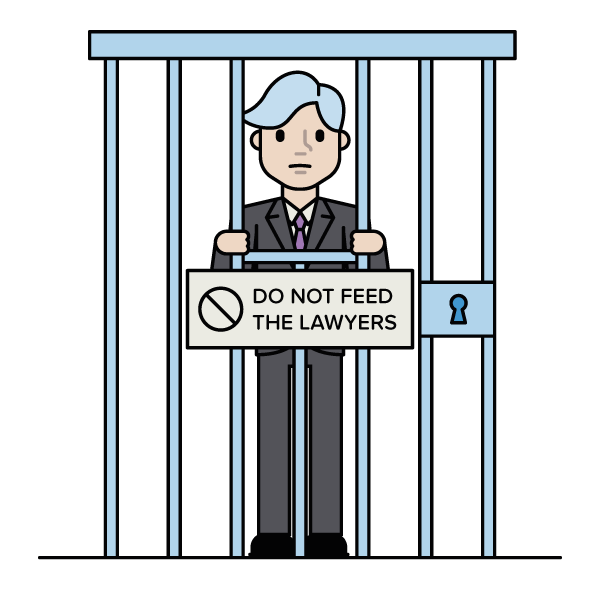Website terms incorporating a legal information disclaimer
In addition to this stand-alone disclaimer, we also publish a premium set of website T&Cs incorporating a disclaimer relating to legal information. See: legal website T&Cs.
More about legal disclaimers
This is a specialist disclaimer template, that may be suitable for use on a website that provides legal information, such as information about legislation, case law, legal theory and/or legal practice.
The disclaimer asserts that the legal information published on the website is just that – legal information and not legal advice. It asserts that no warranties or representations are given in relation to the legal information. And it seeks to exclude any liabilities that may arise out of the use or misuse of the information.
The disclaimer may be incorporated into a general legal notice, or used on its own.
The contents of this legal advice disclaimer are as follows: (1) no advice, (2) credit, (3) no warranties, (4) no lawyer-client relationship, (5) interactive features, (6) professional assistance, (7) limiting our liability.
Note: the courts generally view disclaimers of liability with disfavour, and have at their disposal a range of conceptual tools to limit the effects of disclaimers. You should not rely upon any document that seeks to exclude or limit liability except upon legal advice. Even if you take legal advice, the advice you receive may well be heavily caveated.


I found your disclaimer impressively legalistic-looking, and especially enjoyed the part about legal advice being heavily caveated. Till now I thought “caveat” was only a noun; I didn’t realize you could “caveat” something. This changes everything.
According to Ben Zimmer in this post, use of the “caveat” as a verb is a stylistic faux pas, but not actually incorrect:
To me, it doesn’t grate – but then lawyers aren’t renowned for their sensitivity to prose style.